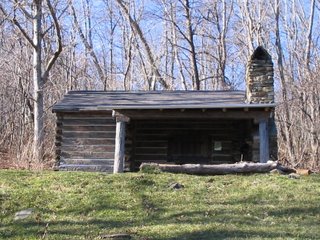
Dead Meat
My first year of teaching in 1982 was a real eye-opener.
In my first year, I had the pleasure of teaching a bright girl named Lisa. I know where the expression “dirt poor” comes from, because Lisa came from a dirt poor background. Lisa was a lanky girl with potentially beautiful long brown hair. She always came to school with a quiet smile, as if school was a place for her to escape from her nightmare. Her family was so poor that what most today consider basic needs weren’t possibilities for her. She would come to school without a weekly bath in dirty, ragged clothes. I felt so sorry for her.
Quite a few of the native residents in Greene were poorly educated. Oleta, Lisa’s mother, was one of them. Oleta was a baby factory who scratched together a meager economic existence with her second husband, Harold. He worked in a local milking parlor (barn) while she stayed home watching her approximately 10 kids. According to the school’s guidance counselor, they lived in a one room shack with a dirt floor. Farm animals roamed freely inside and out.
Life for Lisa was brutal and oppressive, which I suspect led to her shyness. She had more chores than any suburban child could possibly imagine, from feeding chickens to helping slaughter the pigs. Television and even electricity were luxuries only experienced at school. Lisa was expected to take care of her brothers and sisters, too. There was at least one set of twins in the family, and the younger children, those who were fathered by Harold, were less compliant. Lisa, one of three children from the first marriage, wasn’t treated respectfully and lovingly by Harold. She led a tormented life. Despite it all, she always had a kind word and a warm smile for me.
I have to credit Oleta for coming to meet me at the first parent teacher conference, however. I had never met her, and when she walked into my classroom, I honestly thought that she was someone’s grandmother. She was a skinny lady who wore a long dirty dress and granny boots. Her gray hair was tied in a bun on her head, and she greeted me with a toothless smile. I used to guess ages at an amusement park, so I knew something about how age wears on a face. Oleta looked about 70, but she was only 35 according to the school records. Also according to the records, she had made it successfully through the second grade while her husband had made the through the third. I remember her telling me that I had full authority to get the switch after her girl if she didn’t mind me. Of course, Lisa was the nicest of all the girls in my class. No switch from me would ever be necessary.
A year or so later, my wife taught Melissa, the next oldest girl in the family. Melissa had the same shy, reclusive mannerisms as Lisa. I’ll never forget the day when Melissa came into her classroom with a black eye. She said a horse stepped on her head. The Department of Social Services had another opinion.
Another child I taught that year grew on me like a fungus. In fact he sort of looked like a fungus. His name was Davis Taylor. I was warned about
One day, I observed
“So
“Nuh-ting.”
“Ah come on man, let me see whatcha got there...”
Then a wry grin came across his puffy face. He flicked the greasy hair out of his eyes, looked up, and unveiled his piece of notebook paper to me. It was a list...an amazing neat list with two well-defined categories: “Pick-Ons” and “Dead Meat.” There were children’s names in each category. So I asked the next question...
“
To understand his reply you have to imagine his dialect. I will attempt to recreate his speech phonetically to the best of my ability.
“Dis here bunch is the kids I’m gonna jest pickown. Den this here bunch is the ones thats dead meat! I’m gonna git dem good. Dey woent no what hitem.”
I knew
There were so many more kids like Lisa, Melissa, and Davis. For many, their lives were tragic dramas. There was Johnny, who earned his driver’s license in the sixth grade. I’ve got to hand it to him for staying in school despite failing so many grades. Timmy, whose father claimed he was a “revenue agent” and whose older brother was executed for a brutal murder, is serving time for robbery and attempted murder. I never found out what happened to Junior, who once broke both of his hands so that he could get casts where just the middle fingers of both hands were splinted. I’ll never forget when Junior lifted both of his casts up to my face and politely told me that he wouldn’t be able to do any class work for some time. Such a sweet child.
Together, these children along, with many, many others form my collective memory of teaching in that rural area.
No comments:
Post a Comment